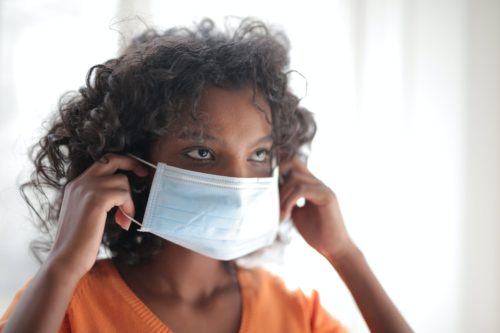When coronavirus first started its march across the world, it seemed to target first Asia and then Europe, leaving large swaths of the African continent virtually untouched. This led to discussions on social media—some serious, some funny memes, some dangerous rumors and conspiracy theories—suggesting maybe black folks were immune to the virus that causes COVID-19.
But many of us knew better. Coronavirus doesn’t care about the race or ethnicity of its victims, but longstanding disparities in black communities are creating a crisis within a crisis.
Normally, the Centers for Disease Control and Prevention tracks viral outbreaks and releases data about the age, race and location of the people affected. But for the coronavirus pandemic, the CDC has released only location and age data, remaining silent on race, despite requests for demographic information from doctors, lawmakers and media.
So far, only a handful of states, including North Carolina and Illinois, are releasing their coronavirus racial data. But this limited data reveals exactly what we feared: The virus is having a significant impact on black communities across the country.
As of Sunday, April 5, black folks, who make up 29 percent of the population in Chicago, were 70 percent of the COVID-19 deaths in that city. Though we are only 14 percent of the population in the state of Michigan, we make up 40 percent of COVID-19 deaths there, with the highest concentrations of cases in the largely black counties around Detroit. Similar numbers show we are disproportionately affected in Atlanta; Milwaukee; Charlotte, North Carolina; some boroughs in New York City, particularly the Bronx; and New Orleans.
Who didn’t see this coming? Generations of limited access to health care, and a toxic brew of income inequality, lack of insurance, and environmental and political issues leave black communities vulnerable to a higher risk of chronic conditions and with a deep mistrust of the medical community and few resources.
“COVID is just unmasking the deep disinvestment in our communities, the historical injustices and the impact of residential segregation,” Camara Jones, epidemiologist and visiting fellow at Harvard University, told ProPublica. “This is the time to name racism as the cause of all of those things. The overrepresentation of people of color in poverty and white people in wealth is not just a happenstance. … It’s because we’re not valued.”
Jones is correct. A whole host of disparities are contributing to these concerning coronavirus statistics:
- Black communities have less access to coronavirus testing. Last month, a group of doctors in Virginia expressed concern about this. “I want to make sure that in this pandemic, black and brown people are treated in the same way and that these tests are made available in the same pattern as for white people,” said Ebony Hilton, an associate professor of anesthesiology and critical care medicine at the University of Virginia.
- We are more likely to suffer underlying health conditions that make COVID-19 infections more serious, including heart disease, diabetes, hypertension, asthma, obesity and some cancers.
- Lower-income areas—which are more likely to have large populations made up of people of color—have limited access to quality health care. When we do see a doctor, our complaints often are ignored and our pain minimized.
- Lower-income workers are less likely to have health insurance. They’re also more likely to hold jobs where they are considered essential workers who can’t work from home. These jobs often don’t offer paid sick leave.
- Substandard housing, multiple people living in the same house and homelessness all make it easy for coronavirus to spread.
So where do we go from here? “In terms of who is at risk, who gets sick—it is too late,” Leigh University’s Sirry Alang, who studies health disparities, told Axios. “But there are things we can do to mitigate the impact.”
Those mitigating factors include incorporating voices of people of color in shaping a response of justice and equity, forming partnerships between public health officials and trusted community organizations to tailor messages about prevention and treatment, and a commitment to transportation and affordable public housing.
As of Sunday night, more than 337,000 people in the U.S. have been diagnosed with COVID-19, with the death toll closing in on 10,000, according to Johns Hopkins University. The country has the highest number of confirmed cases in the world. Globally, more than 1.2 million people have been infected.
For more information about coronavirus, and tips to take care of you and your family, check the Black Health Matters Coronavirus Hub.





